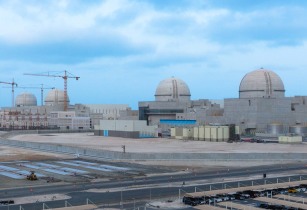As world leaders meet at the United Nations Climate Action Summit in New York, and the World Meteorological Organisation (WMO) and Intergovernmental Panel on Climate Change (IPCC) publish new reports, Agneta Rising, director general of World Nuclear Association, stresses that nuclear power is the ?unsung hero? in global efforts to reduce carbon emissions
In the Middle East region, Saudi Arabia had projected 17GWe of nuclear capacity by 2040. The UAE is constructing Barakah nuclear power plant. Egypt, Turkey, and Jordan are each pursuing the development of nuclear energy at their own pace.
Rising?s comment reflects the conclusion of the International Energy Agency that without an expanded contribution from nuclear energy, the already huge challenge of achieving emissions reductions will become drastically harder and more costly.
Rising said, ?Nuclear reactors are the unsung heroes as we set out to respond to the climate change challenge. The need for nuclear energy has never been greater ? there simply is no other energy source which can deliver deep decarbonisation within the necessary timeframes.?
The UN summit comes in the wake of the worldwide climate strikes joined by millions of people and called for much greater action.
This public call for action is backed by science. The United in Science report, coordinated by the WMO, has concluded that cuts in greenhouse gas emissions need to increase by between three and five times to limit the damaging effects of climate change.
While UN secretary-general Ant?nio Guterres has called for a ban on new coal construction, the WMO report goes further, stating that the net-zero emissions needed to stabilise the climate requires an acceleration in the use of non-carbon energy sources and a rapid decline in the global share of fossil fuels in the energy mix.
The IPCC released their latest report on the state of the climate with a special focus on the oceans. The report makes it abundantly clear that we need to achieve deep, rapid cuts in carbon emissions. This report is the third in a series, the first being the ?Special Report on Global Warming of 1.5?C? released in October 2018. In the reference scenario where global warming is limited to 1.5?C and no major changes to our modern way of living are required, nuclear increases five times globally by 2050.
The conclusions of these reports are echoed by the nuclear industry?s Harmony goal, which states that to meet the growing demand for sustainable energy, nuclear energy will need to provide 25 per cent of electricity before 2050 as part of a clean and reliable low-carbon mix.
Agneta Rising said, ?Every corner of the world needs sustainable, reliable and affordable electricity. Meeting these needs will require nuclear energy to make a major contribution. Governments must take action to ensure that the barriers to the deployment of nuclear energy are removed.?





